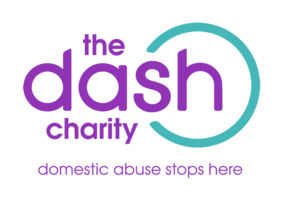As England eagerly cheers on its national team in the UEFA Euros 2024, our team at The Dash Charity awaits a worrying pattern: an increase in calls and referrals to our domestic abuse helpline.
Big increase in calls
We’ve seen some serious changes in the number of calls to our helpline during major football tournaments.
Here’s a look at the numbers during a period of 6 England matches played during the Euros in 2021, compared to the same weeks the previous and following years:
- 13 June – 11 July 2020: 53 calls
- 13 June – 11 July 2021: 95 calls
- 13 June – 11 July 2022: 60 calls
In 2021, when England was playing in the Euros, we saw a staggering 79% increase in calls and referrals compared to the previous year. Although this number dropped by 37% the following year, it remains alarmingly high. These stats show how big football events can impact domestic abuse incidents and highlight the importance of our services during these times.
The Link Between Football and Domestic Abuse
Here are some key points about football and domestic abuse in the UK:
- Domestic Abuse Increases Regardless of Match Outcomes: Many think domestic abuse spikes only when England loses. Actually, reports to the police go up whether the team wins, loses, or draws. The emotional highs and lows of these events can trigger aggressive behaviours.
A study** conducted by Lancaster University found that domestic abuse incidents reported to the police increased by 26% when the England national team won or drew and by 38% when the team lost during the 2018 World Cup.
- A Unique Trend in Men’s Football: This spike in domestic abuse incidents is specifically linked to men’s football. We don’t see the same pattern during the Six Nations Rugby or the Women’s Football World Cup. This suggests a unique cultural issue related to men’s football.
- A Persistent Problem: During the last Euros tournament (played in 2021), calls to The Dash Charity helpline surged. Domestic abuse charities say this pattern is consistent with previous tournaments, indicating a persistent issue that peaks during major football events.
- Alcohol as a Significant Trigger: Alcohol consumption is a major trigger for domestic abuse, more so than the outcomes of football matches. The excitement and social gatherings that come with football games often lead to more drinking, which can worsen aggressive behaviour.
- Efforts to Combat Domestic Abuse in Football: Organisations like FIFA and Women’s Aid are working to tackle this issue. Initiatives include awareness campaigns and stricter regulations on alcohol sales during matches to reduce alcohol-fuelled violence.
Moving Forward: Awareness and Support
Nicola Miller, CEO at The Dash Charity, adds:
“Football itself does not cause domestic abuse. In fact, alcohol doesn’t actually cause domestic abuse either: the perpetrator does. They may be fuelled by alcohol or external events, but domestic abuse and its triggers are about power and control over the victim.”
While supporting our national team is exciting, it’s crucial to stay aware of the darker side of these events. At The Dash Charity, we’re dedicated to providing support and resources for those affected by domestic abuse.
If you or someone you know needs help, please reach out for help. Together, we can create safer and more supportive communities for everyone.
Sources:
*The Dash Charity data
** Lancaster University Study on Football and Domestic Abuse
BBC News – Football and Domestic Abuse
Refuge Charity – Domestic Abuse and Football
Institute of Alcohol Studies – Alcohol and Domestic Abuse
Women’s Aid – Football United Against Domestic Violence
FIFA – Safeguarding in Football
